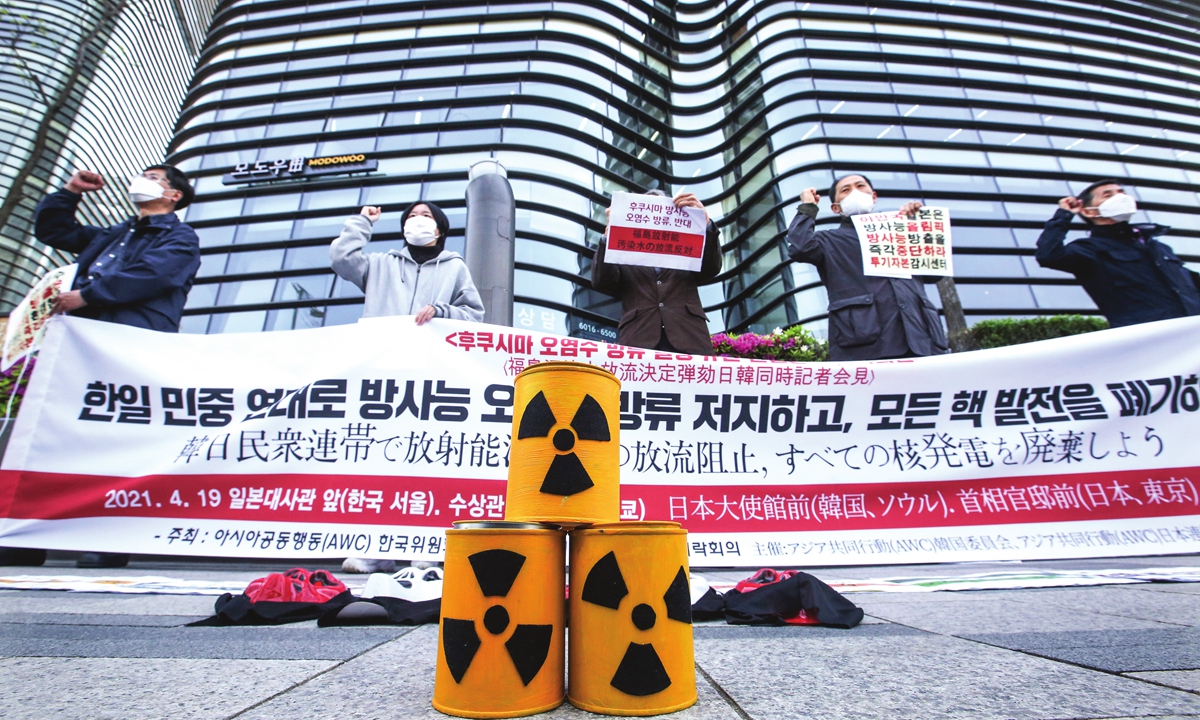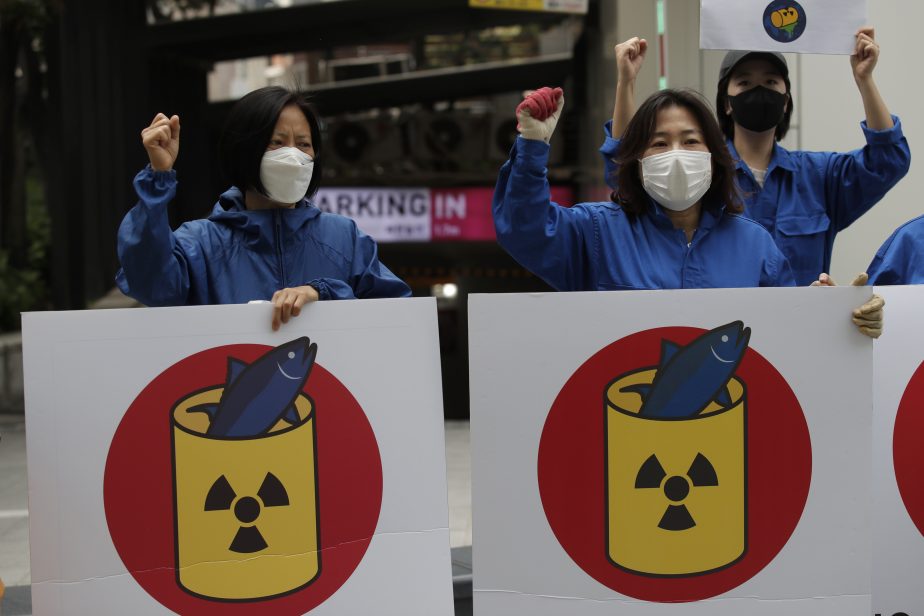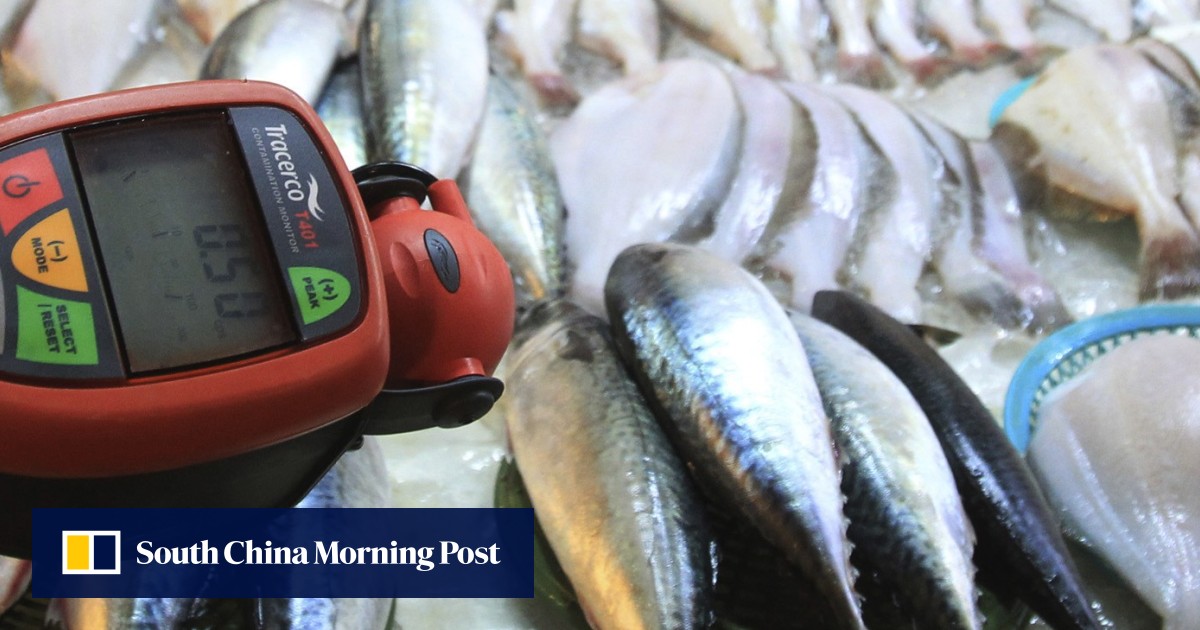
China Summons Japanese Ambassador
Over Tokyo’s Wastewater Dumping Plan
Global Times
(August 22, 2023) — Chinese Vice Foreign Minister Sun Weidong on Tuesday summoned Japanese Ambassador to China Hideo Tarumi to lodge solemn representations over Tokyo’s announcement that it would start discharging nuclear-contaminated wastewater from the Fukushima nuclear plant from August 24.
Sun pointed out that such an act blatantly transfers the risk of nuclear pollution to neighboring countries, including China and the international community, and puts Japan’s own interests above the long-term well-being of people in the region and around the world. It is extremely selfish and irresponsible, and China expresses grave concern and strong opposition, he said.
China calls for Japan’s sincere communication with neighboring countries and responsible disposal to avoid unpredictable damage and harm to the global marine environment, Sun noted. If Japan persists in its unilateral action, the Chinese government will take necessary measures to firmly safeguard the marine environment, food safety, and public health.
insistence on dumping the Fukushima nuclear-contaminated water is extremely selfish and transfers the risk of nuclear pollution to the rest of the world. The legitimacy and safety of discharging nuclear-contaminated water into the sea in Fukushima has been widely questioned by the international community, and there are also numerous voices of opposition within Japan. China solemnly urges the Japanese side to immediately cancel its erroneous decision, stop the dumping plan, and avoid irreversible consequences, the spokesperson said.

China and Russia Accuse Japan of Dumping
Fukushima Wastewater for Cost Reasons
Julian Ryal and Agencies / South China Morning Post
(August 22, 2023) — The decision to dispose of radioactive water in the sea has alarmed neighbouring countries, even though the International Atomic Energy Agency says it is safe.
A joint submission by Moscow and Beijing said heating and then evaporating the water would be safer, but this option would be more expensive.
China and Russia have accused Japan of basing its decision to dispose of radioactive waste–water from the Fukushima nuclear plant in the sea on economic rather than scientific grounds.
They made the charge in a series of letters to the International Atomic Energy Agency, including a joint list of technical questions to Japan on July 26 questioning the choice of water discharge when another potential option, vapour release, “has less impact on the ocean and neighbouring countries”, and is less likely to cause leakage or pollution.
Last month’s letter went on to say: “Japan also mentioned that ‘facility configuration for discharge into the sea is simple compared to that for vapour release’, which shows that Japan chooses ocean discharge based on economic considerations.”
Despite continued protests domestically and from neighbouring countries, Japanese Prime Minister Fumio Kishida said on Monday that the plan would go ahead with the first release of the treated and diluted water into the ocean as early as Thursday
The decision to release wastewater from the Fukushima plant has angered neighbouring countries, including China. Photo: Kyodo
China and Russia have accused Japan of basing its decision to dispose of radioactive wastewater from the Fukushima nuclear plant in the sea on economic rather than scientific grounds.
They made the charge in a series of letters to the International Atomic Energy Agency, including a joint list of technical questions to Japan on July 26 questioning the choice of water discharge when another potential option, vapour release, “has less impact on the ocean and neighbouring countries”, and is less likely to cause leakage or pollution.
Last month’s letter went on to say: “Japan also mentioned that ‘facility configuration for discharge into the sea is simple compared to that for vapour release’, which shows that Japan chooses ocean discharge based on economic considerations.”
Despite continued protests domestically and from neighbouring countries, Japanese Prime Minister Fumio Kishida said on Monday that the plan would go ahead with the first release of the treated and diluted water into the ocean as early as Thursday.
The IAEA approved the plan in July saying it met international standards and would have a “negligible” impact.
Japan first outlined its plans to dispose of the wastewater in a 2016 report, listing five options including water discharge and vaporisation.
The report said water discharge was the cheapest method with an estimated cost of 3.4 billion yen (US$23 million) and would be the quickest way to dispose of the water. By contrast, vapour release would cost 10 times more at 34.9 billion yen.
The IAEA concluded that vapour release and water discharge were both “technically mature” methods that had been successfully tried before, but the others had no track record.
The wastewater will be filtered through the Advanced Liquid Processing System (ALPS), which can remove most radioactive elements.
Fukushima Water Dump: ‘Nationalist Victimization’
However, critics of the method point out that it cannot filter out tritium, a form of radioactive hydrogen, because it cannot distinguish between tritiated water and regular water.
China and Russia argued Japan had “not taken the review results seriously” and said that they did not provide a sufficient reason for choosing discharge.
Japan’s response was that it had made changes to its plans that reflected the IAEA’s findings and it had provided evidence that water discharge could be “implemented more reliably” and “monitored most accurately”.
But the Chinese Ministry of Foreign Affairs said “Japan has yet to provide sufficient scientific and convincing explanations” to questions about the safety of the method.
The IAEA Review Team stated that an analysis of the methods by Japan’s ALPS subcommittee was sufficient and “based on a sound scientific and technical basis”.
Japan also said countries around the world, including China and Russia, also discharge liquid waste from nuclear sites into the sea.
The Japanese Ministry of Economy, Trade and Industry said that less than 22 terabecquerels (a measure of radioactivity) of tritium would be released from the plant each year.
In comparison, they said that one of China’s nuclear plants, Qinshan, released 143 terabecquerels in liquid form alone in 2020.
Despite this, China’s ambassador to Japan stated that other plants releasing waste did not have a melted reactor core, so the situations are not comparable.
The vapour release method favoured by China and Russia would involve measured amounts of water being moved into a tank and heated to temperatures of up to 1,000 degrees Celsius (1,832 Fahrenheit) before the vapour is released.
But there are no diffusion models available to model vapour release like the ones that have been produced for water discharge. Heating the radioactive water up to 1000 degrees could also produce secondary incinerator ash waste, which would need further disposal, according to the report.
There are also additional concerns, including re-evaporation, which would spread the remnants and make it difficult to monitor.
China and Russia countered that there are mature methods to monitor airborne tritium, and that water discharge would be more likely to cause illegal discharge or leakage, however they did not provide further information on how vapour release compares.
Li Tian, vice-president of the nuclear energy branch of the China Electricity Development Promotion Association, said that while Japan had chosen water discharge for cost reasons, “if they follow global guidelines, the ocean’s ability to dilute [the waste] is good”.
But he warned that the technology may require more research, and Japan’s own radioactivity measurements may not be enough to assure people.
In March, the Chinese Ministry of Affairs questioned why Japan will not discharge the water domestically if it indeed meets standards for release, and said that “it is only logical and legitimate for China and other stakeholders to express our concern over and firm opposition to that decision”.
Hong Kong to Ban Japanese Seafood Imports Over Fukushima Plan
The Japanese Broadcasting Corporation NHK reported that in June Tokyo Electric Power Company had detected higher-than-usual levels of tritium in rainwater collected from a dyke surrounding a treated water tank due to a transfer hose leak, with tritium levels up to 67,000 becquerels per litre, above the 60,000 standard set for release.
Organisations such as the Pacific Islands Forum and Greenpeace have also urged Japan to consider long-term storage instead of release.
Jim Smith, an environmental scientist at the University of Portsmouth in Britain, told Nature that Japan is “running out of space” and at this point keeping the water on-site and risking damage and leaks from another earthquake or typhoon was a greater risk than moving ahead with release.
Rafael Grossi, the director general of the IAEA said last month that the UN watchdog was taking China’s concerns and has offered to clarify the situation if asked. So far Beijing is not known to have taken up the offer.
Posted in accordance with Title 17, Section 107, US Code, for noncommercial, educational purposes.

